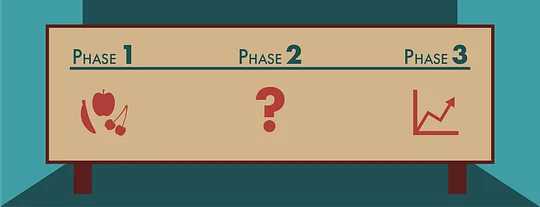The ROI of Fruit

How many times have you looked at a job posting only to see the mention of free fruit? Sure it’s nice to have free food, but what purpose does it serve and does it have anything to do with employee wellbeing?
Why Wellbeing Matters
Wellbeing is a common buzzword at the moment, linked strongly with employee retention and engagement, but what is it really?
In the workplace, it breaks down into two broad streams; physical and mental wellbeing. There is some crossover between the physical and mental aspects, but for the most part, these are separate parts of wellbeing at work.
It doesn’t matter if you’re doing a job that you love, it’s still hard work
Startups and large organisations are both capable of excelling in specific areas of wellbeing. But few organisations of any size are capable of ensuring the holistic wellbeing of its employees.
What is apparent is that having greater employee engagement in these areas makes for a more positive office and more motivated and loyal staff. Multiple pieces of workplace research assert that greater employee engagement directly corresponds with increased loyalty.
This is a vital component for any company’s policies when more than 80% of employees would accept an offer elsewhere or are actively looking for new work as of 2018. It’s a worrying figure when only 15% are engaged in their jobs worldwide.
Physical Wellbeing
Sitting at a desk for eight or more hours per day isn’t conducive to the healthiest of lifestyles, or the most engaged employees, but it’s the reality of most office workers today. Sedentary issues are common across the board, even when you’re working so fast and so hard at your desk you’re exhausted by the end of the day.
Startups tend to excel in this area. Having a small team and less hierarchical structure means it’s easier to dive into activities as a group, especially when working long hours in the office to get products off the ground. The bond that comes from that makes for an engaged, collaborative team keen to team-build in ways they wouldn’t necessarily attempt on their own or at a larger company.
Employers can help employees meet their physical wellbeing needs by providing a framework that supports an active lifestyle. It can be a cycle to work scheme or sports club, corporate gym membership, or more grassroots initiatives such as our own 11:FC and Run Club.
Organising activities to encourage a more physical lifestyle are also effective, especially when they’re linked to charitable fundraising like the Tough Mudder races 11:FS compete in regularly. Having these opportunities easily available to staff and built-in to their working lives means they can choose to improve their physical wellbeing while at work.
Mental Wellbeing
It doesn’t matter if you’re doing a job that you love, it’s still hard work. It’s still mentally taxing and that only gets worse if you’re working a job you don’t love. Life will throw unexpected things your way that can shake your mental wellbeing. Sometimes the intensity of work you’re doing and stress you’re under will do that on its own.
Maintaining and securing the mental wellbeing of employees is where big corporate structures can really shine. Being big may not be great for agility, but it does mean that there is generally a robust framework in place to protect employees’ mental health needs.
A strong framework is vital to ensuring mental wellbeing. Lack of any framework is why startups have a reputation for being cut-throat environments. It’s not out of choice, but building an organisation from the ground up means that the framework needs to be developed from nothing. That’s rarely high on the list of priorities for a firm that needs to get product to market and secure its next funding round.
Mental wellbeing is dependent on many different factors and often ignored on a day to day basis. But when it dips, having robust measures in place that can adapt to employee needs is vital to supporting staff.
It’s unfortunate that many startups are unable to give employees as strong a mental wellbeing program as big organisations, but that doesn’t mean it doesn’t exist.
Therapy credits might not be available, but that means managers and team leaders need to be more empathetic, more human and more focused on the day to day needs of employees. It helps keep employees comfortable at work and that’s the core purpose of wellbeing.
For SMEs and startups, it’s about being human in the workplace and understanding the realities of employee mental health.
What About the Fruit?
Despite the title, I haven’t written much about fruit. That’s because fruit isn’t part of wellbeing, it’s food.
The fruit basket in the communal kitchen is a nice little extra to say that an employer cares about the health of its employees, but it can also be an excuse to not try harder to provide employees with actual wellbeing services. Just because someone offers you a banana it doesn’t mean they’re invested in employee comfort at work.
Wellbeing is an extension of the core cultural philosophy of a company. If you’re agile and deploy programmes in a way that’s reactive to employee needs then no matter the size of a company’s structure, employees will be looked after holistically.
No company does employee wellbeing perfectly and there’s no way any company gets it right from the start. But it’s about constantly improving and creating an environment where employees know that you’re doing the best you can for them and they’ll do their best for you.
Wellbeing is not about the extras that a company hypes up to attract employees, it’s about making sure that each employee is comfortable and able to do their best work.
That’s never going to be solved by free fruit.


